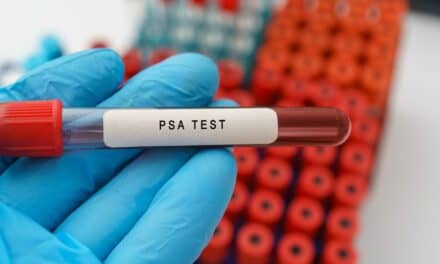A study of over 10 million men reveals frequent testing of patients unlikely to benefit, raising questions about current screening practices.
Prostate-specific antigen (PSA) testing in England may not effectively target patients most likely to benefit from screening, according to new research that analyzed data from more than 10 million men across the country.
The study, published in The BMJ, found that many patients are tested more frequently than recommended guidelines suggest, with repeat testing often occurring in men without recorded symptoms or with previous low PSA values.
Researchers from the University of Oxford examined data for 10,235,805 men aged 18 and older who were registered at 1,442 general practices across England between 2000 and 2018. During the study period, 1,521,116 men had at least one PSA test, resulting in 3,835,440 PSA tests overall.
Testing increased fivefold during the study period, particularly in men without symptoms and those with PSA values below recommended thresholds. The highest testing rates occurred in men aged 70 and older, who are least likely to benefit from repeat testing, while a substantial portion of tests occurred in men much younger than recommended (ages 18-39).
Retesting Patterns Raise Concerns
Nearly half of the men (735,750) were retested during the study period. Of those retested, more than 75% had no symptoms recorded, and 73% never had a PSA value above the recommended threshold.
The average interval between tests was just over 12 months overall and 17 months for patients who never had a PSA value above the recommended threshold—shorter than most guidelines advise.
Testing rates varied by region, deprivation level, ethnicity, family history, age, PSA value, and symptoms. The highest rates were seen in patients of white ethnicity and in less deprived areas.
“PSA testing in primary care is varied. Among patients who underwent multiple tests, many were tested more frequently than recommended, raising concerns about overtesting,” the authors write. “PSA retesting is occurring in patients without recorded symptoms or with previous low PSA values.”
Need for Evidence-Based Guidelines
The findings reflect inconsistent international guidance on PSA testing practices, according to the researchers. Despite UK recommendations to limit PSA testing to patients with symptoms or after discussion with a GP, the results show widespread deviation from these guidelines.
The authors note that “unpredictable surges in PSA testing, overtesting, and associated costs” may occur as a result of celebrities publicly sharing their cancer diagnoses and advocate for screening.
“To ensure maximum patient benefit while reducing the risk of overtesting, research is urgently needed to determine appropriate evidence-based PSA retesting intervals,” the researchers conclude.
In a linked editorial, Dr Juan Franco and colleagues warn that “unregulated PSA testing will result in large costs and harms and increase the incidence of prostate cancer likely to remain undetected, while doing little to identify prostate cancer most likely to cause symptoms and death.”
The editorial authors call for better guidance from the National Institute for Health and Care Excellence, especially for men outside recommended ages or those with conditions unrelated to prostate cancer.
PSA testing remains controversial because it has led to increased diagnoses and treatment of healthy men for harmless tumors. Prostate cancer is the most commonly diagnosed cancer in the UK, but PSA testing is only routinely recommended for men with certain symptoms.
ID 143145474 © Piyapong Sintutan | Dreamstime.com





